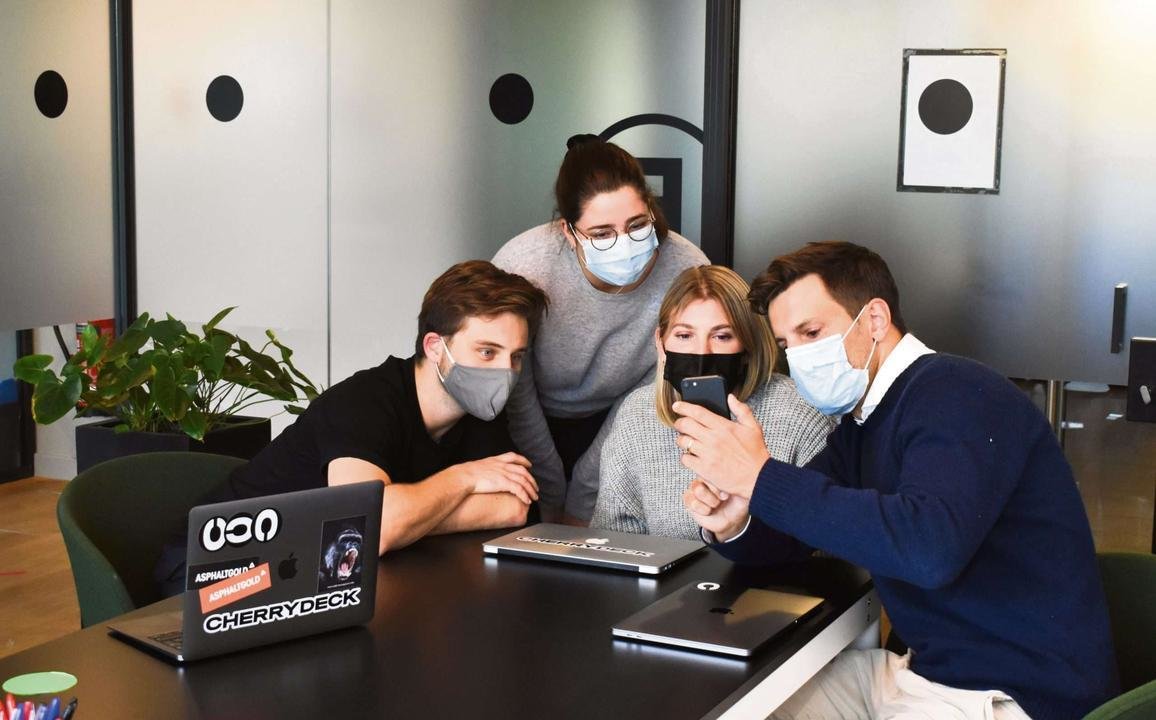Mediación Preventiva

Una de las cosas que hemos notado en pandemia, es que no nos vendría mal aprender a adelantarnos a algunos problemas, siendo capaces de preverlos y de plantear alternativas de solución, antes de que se nos hayan echado encima. Esto convendría frente a cualquier ámbito, pero hay que destacar, que han sido las empresas las que, ante las inciertas circunstancias del último año, han recurrido, con más frecuencia, a la mediación. Mejor dicho, las circunstancias han hecho que recurran a la mediación, y la mediación, a su vez, les ha conducido a plantearse las cosas desde una perspectiva preventiva, pues a pocas certezas podemos acogernos con el panorama actual. Algunas cuestiones sobre las que se debate en sesión son, “qué hacer si la situación se prolonga durante “x” tiempo más, si las ayudas tardan en llegar o no lo hacen, cómo sacar el máximo partido al teletrabajo, cómo innovar en los servicios y productos, cómo seguir siendo competitivos, contratar personas y evaluar su rendimiento, en estas nuevas circunstancias”.

Tratar tales temas desde la neutralidad y sin caer en la queja, el bloqueo o la discusión, es algo que muchas pequeñas y medianas empresas, hacen gracias a la mediación preventiva creando, ellos mismos, su Protocolo de Resolución de Conflictos. Ha sido el caso, por ejemplo, de un empresario que, junto a sus 3 hijos se ocupaba del negocio familiar, una fábrica de calzado y varias tiendas de calzado en su localidad. Desde hacía años funcionan bien como equipo, pero llegado el momento de poner el negocio en manos de los hijos, solicitaron una mediación para hacer el reparto de responsabilidades dentro de un escenario neutral que no afectara al adecuado funcionamiento de la empresa ni a la facturación. Dos sesiones fueron suficientes para configurar el acuerdo. Salieron a la palestra cambios que los hijos querían hacer y que el padre no conocía, temores de los jóvenes que resultaron ser infundados y alguna lucha de poder que, de no enfocarse con humor y constructivamente, podía haber derivado en competitividad desleal y bloqueo. Hoy cuentan con su Protocolo de Resolución de Conflictos y funcionan bien tras el traspaso generacional. No esperaron a que los pequeños conflictos escalarán y se intensificarán, siendo proactivos y adelantándose al problema.
La mediación preventiva posibilita crear estos protocolos equiparables a un contrato, pero que se atienen, no a la legislación sino, en primer lugar, a los compromisos que, conscientemente, deciden adoptar los participantes. El proceso en sí representa un ejercicio de reflexión y expresión asertiva de las necesidades del equipo de trabajo. Otro caso reciente ha sido el de dos amigos y socios que, con ilusión por abrir una farmacia, también construyeron su protocolo tras sólo una sesión de trabajo. Ellos se llevan estupendamente y se conocen hace tiempo, pero dudaban sobre cómo gestionar un equipo de personas y repartirse las funciones. Querían hacer las mismas cosas y no se ponían de acuerdo en detalles. Durante la mediación reflexionaron y dejaron acordado cómo pensaban actuar ante situaciones controvertidas ahorrando tiempo y dinero.
Catalina Bernaldo de Quirós.
Mediadora y Pedagoga
Directora del Gabinete de Mediación “Co-Mediacion”
Más info en: www.co-mediacion.com

Preventive Mediation
One of the things we have noted in the pandemic is that it would be good to learn to foresee some problems, see them in advance and propose options for resolving them, before they get on top of us. This would be useful for any sector, but it is necessary to highlight that it has been companies that, faced with the uncertainty of the last year, have turned to mediation more often. In other words, circumstances have led them to turn to mediation, and mediation, in turn, has led them to consider things from a preventive perspective, as there are few certainties we can rely on with the current situation. Some of the issues debated in sessions are, “what do we do if the situation is prolonged for “x” more time, if subsidies take a long time to arrive or don´t arrive, how to get the most out of teleworking, how to innovate services and products, how to remain competitive, hire people and evaluate their performance, in these new circumstances". Dealing with such issues with neutrality and resisting complaining, blockages or arguments, is something that many small and medium-sized companies do thanks to preventive mediate, by creating their Conflict Resolution Protocol themselves.
This was the case, for example, with a business person who, along with his 3 children ran the family business, a footwear company and several shoe shops in his area. They had worked well for years as a team, but when the time came to hand over the business to their children, they requested mediation in order to share responsibilities in a neutral setting that would not affect the proper functioning of the company or the turnover. Two sessions were enough to reach the agreement. Changes emerged that the children wanted to make and that the father was unaware of, fears of the children that were unfounded and some power struggles that, if not approached with humour and constructively, could have resulted in unfair competition and an impasse. Now they have their Conflict Resolution Protocol and work well after the generational transfer.
They didn´t wait for little conflicts to escalate and intensify, they were proactive and foresaw the problem. Preventive mediation makes it possible to create these protocols comparable to a contract, but they don´t adhere to legislation, but rather, firstly, the commitments that the participants decide to consciously make. The process itself represents an exercise on reflection and assertive expression of the needs of the work team. Another recent case was that of two friends and business partners who, excited about opening a pharmacy, also created their protocol after a single work session. They get along brilliantly and have known one another for a long time, but they had doubts over how to manage a team of people and sharing out duties. They wanted to do the same things and could not agree on the details. During the mediation they reflected on and agreed how they intended to act in controversial situations, thus saving time and money.
